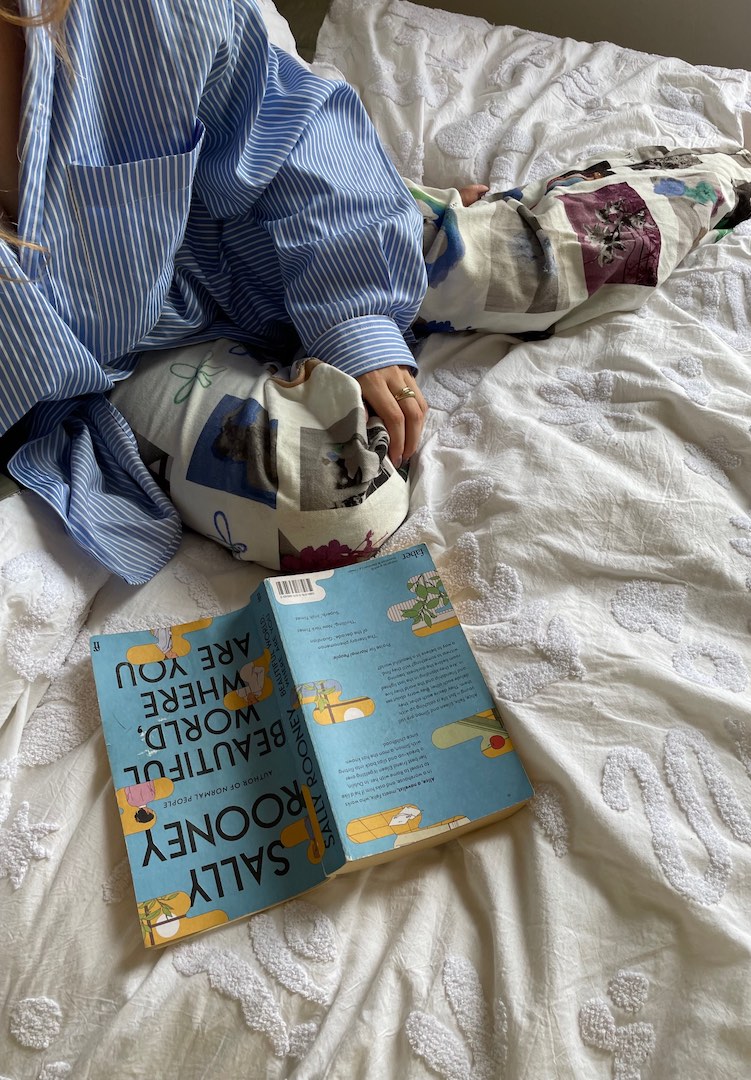What it’s been like learning to live with chronic, recurrent UTIs
Image via @Nicounderwear/instagram
Words by Gabrielle O’Hagan
When the problem keeps coming back.
It always starts the same way. I wake up in the morning with a feeling of heaviness and discomfort in my bladder. As the day goes on, I find myself visiting the bathroom a little bit more than usual, and these trips become progressively more uncomfortable. By the evening, I’ve come to a familiar, sinking realisation: it’s a UTI.
If you’re a fellow vulva-owner, these symptoms won’t be unfamiliar to you. At some point, you probably will have had a UTI. It’s very common among women, due to our anatomy; the urethra and the vagina are very close together, so activities like sex, as well as birth control and diet, can easily allow foreign bacteria into the urinary tract, resulting in an infection.
Want to stay in the loop with our latest sexual health stories? Head on over to our Life section.
Sure, they’re uncomfortable and disruptive, but we’ve all been there, right? So what’s the big deal? Well, for the last three years, I’ve experienced recurrent UTIs. Medically, this is defined as having two separate episodes in six months, or more than three in a year. I’ve always been a bit of an overachiever, so of course I’ve managed to knock this statistic right out of the park.
There’s no real explanation for why this happens to some people recurrently. I’ve asked various GPs, and each time I get the same answer: for unknown reasons, some women are just predisposed to UTIs and experience them chronically. Helpful, right?
Unfortunately for me, my UTIs never resolve on their own. Within hours of developing symptoms, the bacteria manages to make its way swiftly to my bladder, where it causes inflammation, severe pelvic pain and bloody urine. This is a condition called bacterial cystitis, and without treatment it can spread to the kidneys and cause a serious infection.
Luckily, it’s highly treatable. I make a quick visit to the doctors, pee (awkwardly) in a cup, and get my hands on some precious prescription antibiotics. Within a few days, I’m as good as new.
But these recurrent episodes are incredibly disruptive day-to-day. I have an exhaustive list of rituals and over-the-counter medications that I take to prevent UTIs. When I do get one, and it inevitably leads to cystitis, I have to cancel plans and take days off work to get treated.
There have even been times where I’ve been unable to book a last-minute doctor’s appointment, so I’ve spent hours curled in the bathtub or on my bedroom floor while I wait for the next available doctor.
I didn’t realise just how much of an affect this issue was having on me until about a month ago. I’d enrolled in a five-day long intensive writing program over the summer that I was really looking forward to.
The night before it was due to begin, I should’ve been packing or getting a good night’s sleep. Instead, I was trying to book a last minute doctor’s appointment, terrified that I would fail the course if I allowed my symptoms to develop and couldn’t make it into the classes.
As it turned out, I didn’t even have cystitis. But my UTI-anxiety was so visceral that I’d somehow convinced myself that I was about to get one. I’ve spoken to a few of my friends about this before, and they can all empathise with the physical pain of having a UTI. But I’ve never met anyone who’s UTI didn’t resolve by itself without developing into cystitis, nor do I know of anyone who experiences this recurrently.
It wasn’t until recently, when I listened to Abbie Chatfield’s It’s a Lot podcast, that I actually heard someone discuss UTI-anxiety openly. The episode was about her ethically non-monogamous relationship with Konrad Bien Stephens (I highly recommend this episode, by the way). In it, she mentions a recent experience she’d had where she had to go to the hospital to get antibiotics for a UTI.
“It was a last resort, I was in so much pain, and I needed antibiotics, and there were no 24-hour chemists open,” Abbie says. “I was sleeping in the bath.” After I listened to this story, I remember releasing a breath I hadn’t even known I was holding. I’m not sure whether Abbie experiences recurrent UTIs like me, but it was like she had validated my experience and my anxiety about getting them.
There’s a certain stigma surrounding this type of infection. Although it’s a basic, unexplainable fact that some women get them chronically, people (including doctors) have told me that it must be because of something I’m doing wrong.
Trust me, I’ve tried just about everything: cranberry juice, cranberry capsules, effervescent powders, probiotics, and even twice-daily tablets designed to eliminate urinary bacteria. Honestly, I can’t say that any of these are effective at preventing or treating cystitis. If anything, they just slow down the inevitable.
I’m not a GP, and this certainly isn’t a success story. But from my personal experience, I’ve found that the most effective way of dealing with recurrent UTIs and cystitis is to try and prevent them from occurring in the first place. This is easier said than done, of course, but hear me out for a moment.
To start with, I stopped obsessively buying all of the over the counter treatments and medications. They may work for some, but I’ve tried and tested a range of different products multiple times and can safely say that they don’t have a noticeable effect on my body.
The only thing that has worked so far is keeping a water bottle beside me pretty much at all times and emptying my bladder as regularly as possible. Drinking a greater amount of water (about six to eight glasses a day) helps stop any bacteria sticking to the walls of your bladder, dilutes the urine and flushes out any bacteria through the urethra.
As UTIs are often closely linked with sex, if you’re sexually active, it’s important to drink fluids in advance and then pee immediately after. Also, communicate with your partner. Don’t be ashamed to let them know that this is a condition you experience regularly, so they can help you take the steps you need to prevent it. This might include rethinking your birth control, or switching to unscented or non-spermicidal lubricants.
At the end of the day, I’m not the only one experiencing this. All it took was a brief reference on a podcast (thank you Abbie) to remind me that this is just another one of those annoying parts of being a woman, and it’s not something we should shy away from discussing.
For more on chronic UTIs, try this.













